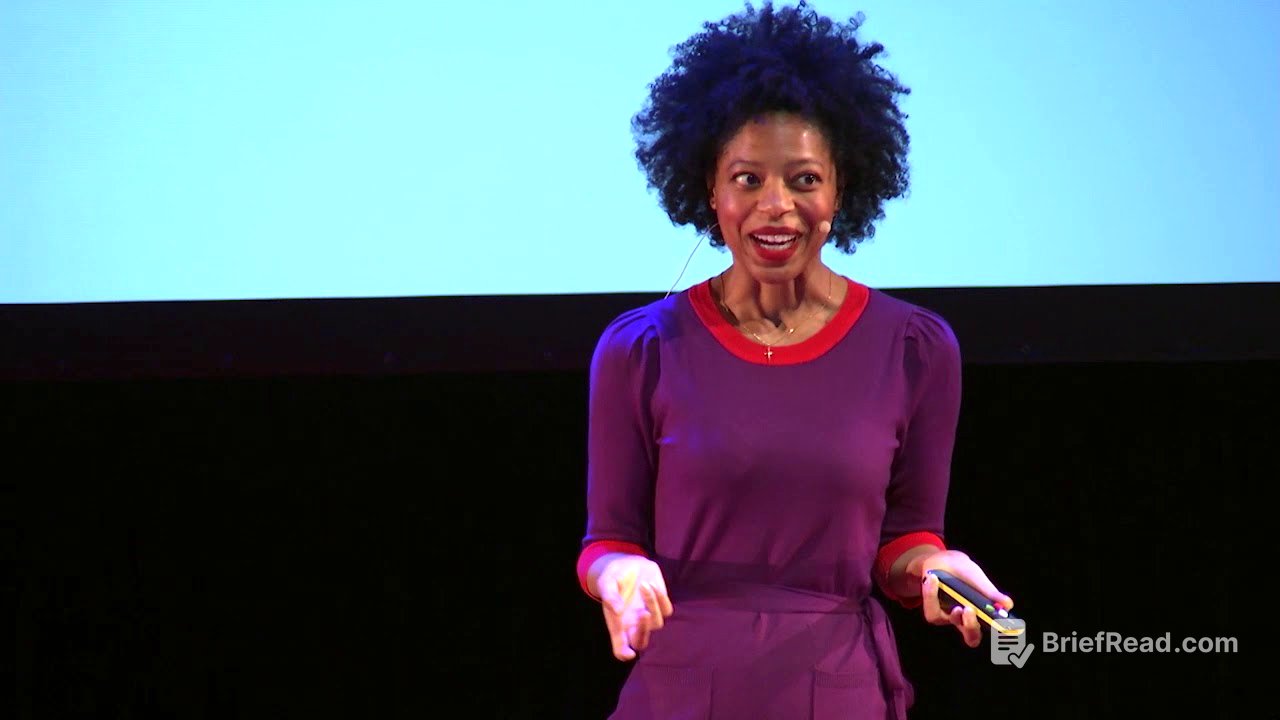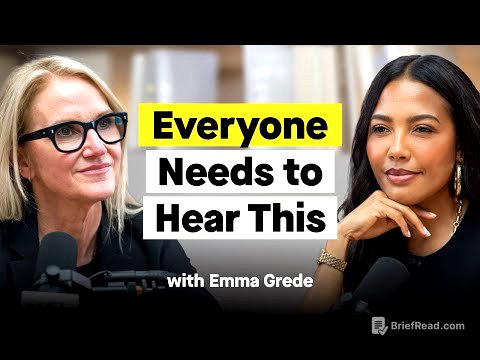TLDR;
This TEDx Talk addresses the pervasive issue of microaggressions, defining them as insults rooted in stereotypes directed at individuals from marginalized groups. It highlights the historical context and impact of these subtle yet damaging behaviors, providing examples related to disability and race. The talk also offers practical tools to avoid making microaggressions, emphasizing the importance of pausing before speaking, researching potentially offensive language, and prioritizing kindness and respect in interactions.
- Microaggressions are insults rooted in stereotypes that target marginalized groups.
- They can accumulate and negatively impact a person's spirit.
- Awareness, historical context, and thoughtful communication are key to preventing microaggressions.
Defining Microaggressions [0:02]
Microaggressions are defined as insults rooted in stereotypes directed at individuals due to their membership in a marginalized group, limiting the ability to see them as individuals. Dr. Chester Middlebrook Pierce coined the term in 1970 to describe dismissive behavior endured by Black people, but it has since expanded to include offensive comments directed at various marginalized groups, including women, people of color, people with disabilities, and older individuals. Microaggressions are prevalent in society, and while everyone holds biases and can be guilty of making or being subjected to them, they can wound people through the accumulation of offensive comments in social and professional settings, which takes a toll on a person's spirit.
Microaggressions Regarding Disability [2:12]
Microaggressions related to disability are common, such as using phrases like "I'm so OCD about my files" or "I'm so dyslexic" when one does not have these conditions. These phrases are examples of ableist language that trivialize serious conditions. The Americans with Disabilities Act (ADA) of 1990 made it illegal to discriminate against individuals with mental or physical disabilities in employment and guarantees access to buildings and transportation. Disability activists once protested the historical exclusion of people with disabilities by crawling up the 83 steps of the Capitol building.
Microaggressions Regarding Race [3:46]
Professing colorblindness, through statements like "I don't see color" or "I was raised to treat everyone the same," can be a form of microaggression. Such comments deny the experiences of people of color and are often used defensively when someone is challenged about an offensive statement, shutting down conversation and allowing stereotypes to persist. The phrase "that's so ghetto" is also a microaggression, with "ghetto" historically referring to areas where marginalized groups, particularly Black and Brown people, are regulated due to poverty and systemic racism.
Historical Context of "Ghetto" and Systemic Racism [5:11]
The word "ghetto" originated in 1516 Venice to describe an area where Jewish people lived and was later used in 1899 to describe low-income areas inhabited by minority groups. In the U.S., it is associated with Black and Brown people living in areas affected by poverty, disenfranchisement, and systemic racism. Systemic racism includes practices like redlining, where loans are denied to black and brown neighborhoods, and policies that undervalue property in specific areas of the city. The GI Bill, while intended to help veterans, was administered in a discriminatory manner, denying loans to developers who planned to sell homes to Black people.
Tools to Avoid Making Microaggressions [7:03]
To avoid making microaggressions, it's important to pause before asking personal questions, comparing someone to something or someone else, or describing someone's personality. Consider the potential impact of your words and whether the comment is necessary and promotes a growth mindset. Research unfamiliar slang or phrases to ensure they are not offensive. The key takeaways are inclusion, respect, kindness, and human decency, treating others as you would like to be treated.









